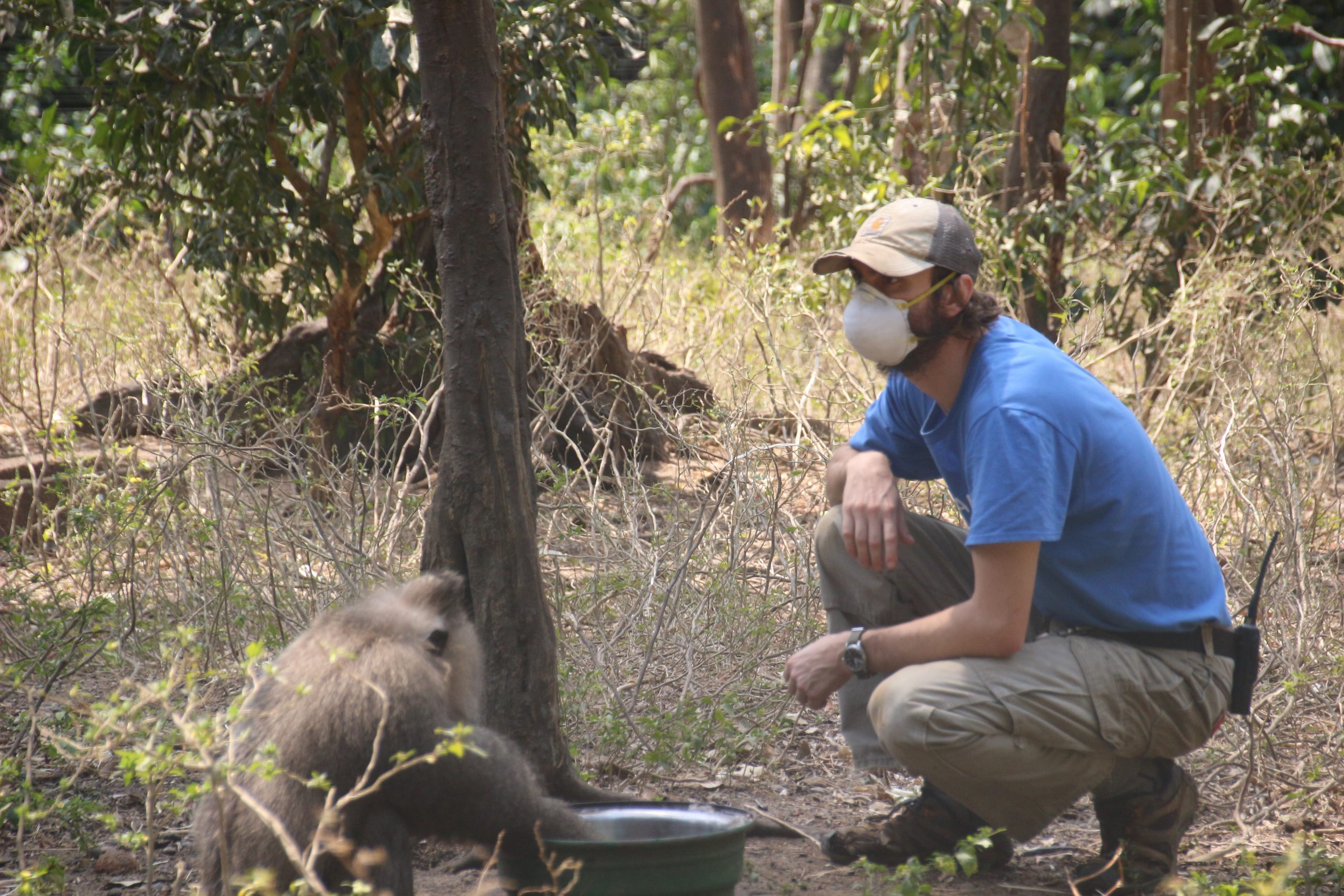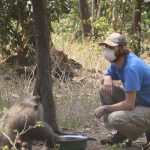Some kind of firm partnership was established in the previous years between Charity Kalender and Save the Drill. The organization, which plays a big role in funding the conservation work for drills in Nigeria and Cameroon, is supported for the fourth time. Zack Schwennecker, 28, studied zoology at the Michigan State University. After graduating he started to work in Nigeria’s Afi Mountains. He told us how this has happened, what he is doing over there and how he deals with the tough everyday work.
Zack, you work for the Drill Ranch in Nigeria since 2015 – how did it happen that an American college graduate ended up living far away from home in Africa?
I have volunteered at Drill Ranch from March 2015-February 2016, October 2016-May 2017, July 2017-May 2018 and then returned in November of 2019 as the Project Manager. I followed in the footsteps of my cousin who volunteered at Drill Ranch on and off for 5 years. I grew up hearing of stories from her at our annual family reunions and that is what inspired me to study Zoology at Michigan State University. When I graduated from Michigan State, I had no plans for my future and not really a whole lot of options. My resume was not impressive. When my cousin floated the idea that I should come and volunteer with her at Drill Ranch it was an easy choice to say yes.
Your job title is “Project Manager” – this can pretty much mean everything and nothing. What exactly is your typical range of work?
There is nothing typical about our work and no 2 days are the same. Depending on our staffing situation, I have to do the veterinary work and all of the corresponding recordkeeping with that(600 animals!), accounting, national staff and volunteer management, construction and design, food buying, community/government engagement on conservation issues, legal/immigration for expatriate volunteers, and so on. And this is at 2 different project sites whose needs and operations run quite differently. When staffing is good, most of these areas are covered by either national staff or expatriate volunteers working with national staff. When it is bad, it may be a 14-16 hour day just to get routine work done.
When you came to Nigeria, did you expect your life to be like this? What has been the biggest problem for you personally since living there?
I had very little expectations coming to Nigeria, which I think has served me well. I have found that many people who have ambitions and dreams of working in Africa become disappointed with the realities of working here. It is not the glamorous work that can often be portrayed on National Geographic etc.. So I think arriving with very little expectations has allowed me to come in and see Nigeria for what it is and thus avoid some of the disappointment that many have working in such a difficult place.
The biggest challenge personally in the past 2 years my age. Nigeria, and Africa generally puts a lot of emphasis on seniority and being just 28(started volunteering when I was 22) means it is more challenging for me to earn credibility amongst peers and staff. With that being said, having been here 6 years I know a lot about the project, the country, and the issues we face which has helped overshadow my youthfulness a bit.
You are working for the Drill Ranch since a couple of years now despite of the difficulties you faced. How do you maintain your motivation / what is your personal drive to keep up your work?
I think anyone working with animals finds their motivation from the animals. When your success can often be so small and your failures often severe, just being able to see the animals thriving in their natural state, albeit in a semi-captive setting, is enough motivation for me to continue fighting for them. When you see an animal come in who has suffered severe trauma, often at the hands of human beings, grow up and forgive the past tragedies, the least any of us can do is go above and beyond what we thought we were capable of to help that animal.
- Zack Schwenneker bei der Arbeit in Nigeria
- und auf Deutschlandbesuch im Zoo Wuppertal. Bild: Hauke Meyer


